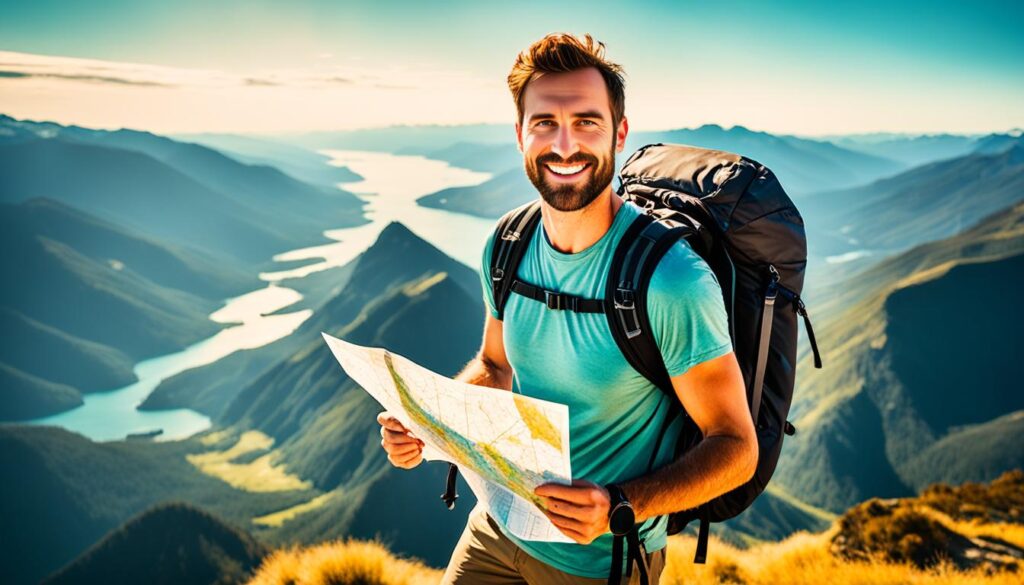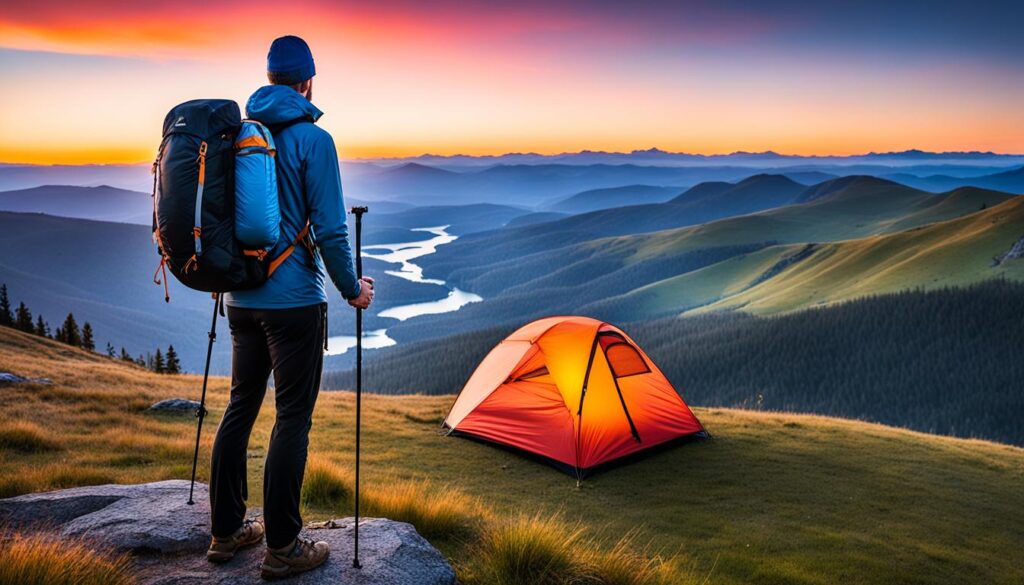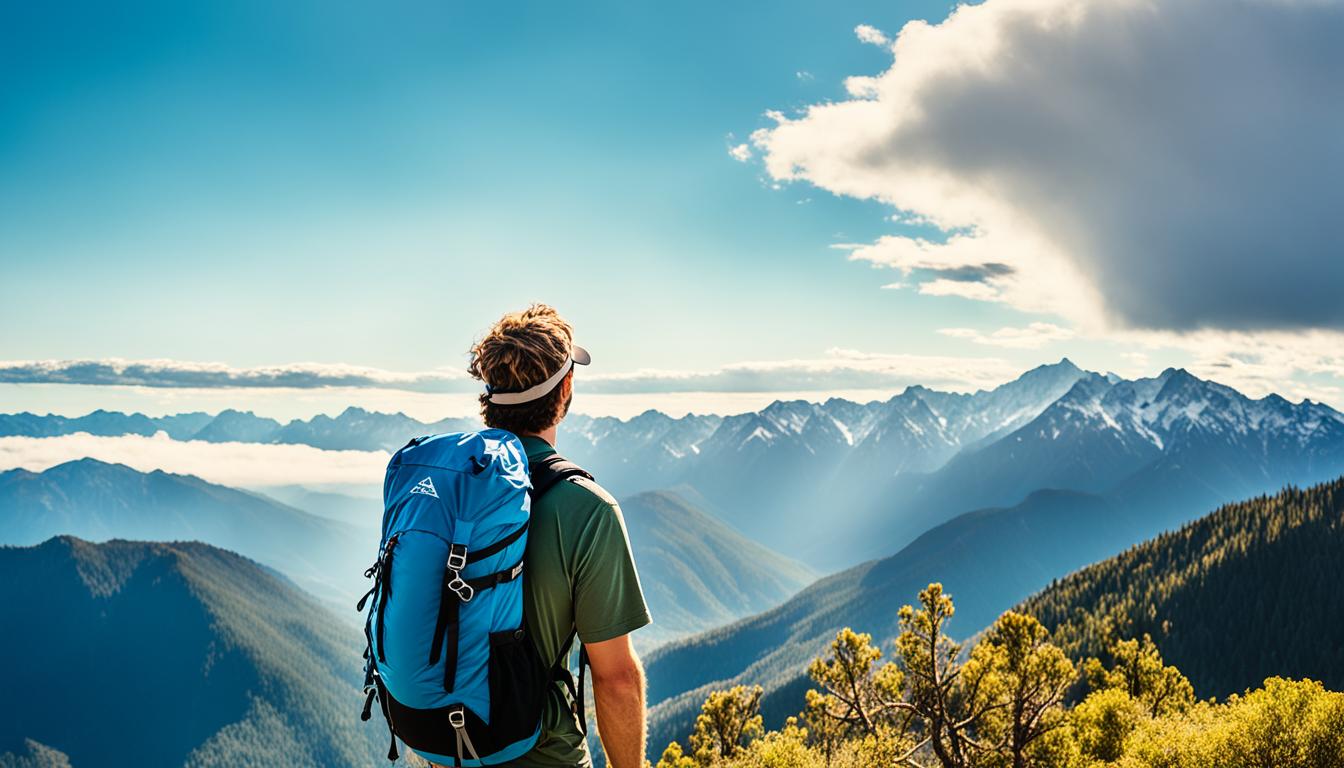Have you ever wondered what it feels like to set off on an unaccompanied journey, equipped with nothing but your backpack and your wanderlust? Embarking on a solo adventure offers an unparalleled sense of freedom, allowing you to make spontaneous decisions and follow your instincts without the influence of companions. As a solo traveler, you fully immerse yourself in unique environments, forge connections with new people, and challenge your comfort zones.
Traveling alone means taking complete ownership of your experience, from planning the itinerary to embracing on-the-ground adventures. Whether your goal is to seek solitude and peace or revel in new experiences and connections, solo travel is your gateway to self-guided exploration.
Key Takeaways
- Embrace the freedom of making spontaneous decisions.
- Fully engage with new environments and cultures.
- Forge connections with new people along the way.
- Challenge yourself and step outside your comfort zone.
- Take complete ownership of your travel experience.
What is Solo Travel?
Solo travel encompasses the act of venturing alone into unknown territories without the influence of familiar companions. It allows lone travelers to step outside their comfort zones and immerse themselves in new experiences.
Definition and Types
Solo travel is defined as setting off independently to explore new places, free from the expectations of known acquaintances. Two primary categories exist:
- Independent travel: Where the traveler personally plans and navigates every aspect of their journey.
- Group solo travel: Where the traveler joins organized tours or cruises alone, yet participates with a group of fellow solo travelers.
Independent vs. Group Solo Travel
Independent travel allows maximum freedom and flexibility, enabling lone travelers to tailor their experiences entirely to their preferences. In contrast, group solo travel offers a structured experience with opportunities for social interaction while still providing the autonomy of traveling alone.
| Aspect | Independent Travel | Group Solo Travel |
|---|---|---|
| Freedom | Unlimited | Moderate |
| Planning | Self-guided | Pre-arranged |
| Social Interaction | Varies | Consistent |
Benefits of Solo Travel
The benefits of solo travel go beyond immediate enjoyment. It promotes personal growth, bolsters confidence, sharpens problem-solving skills, and fosters a deeper self-understanding. As lone travelers navigate their journeys independently, they gain valuable insights into their preferences and desires, free from the influence of peers.
Planning Your Solo Adventure
Embarking on a solo adventure requires meticulous planning to ensure a smooth and enriching journey. From defining your aspirations to selecting the ideal destination, each step should be carefully considered to align with the unique experience of solo backpacking and self-guided exploration.
Setting Your Goals
The foundation of any successful solo trip is setting clear, achievable goals. Whether you aim to indulge in cultural immersion, seek relaxation, or pursue thrilling adventures, knowing your objectives helps shape your journey. Reflect on what you want to gain from your solo backpacking experience and let these aspirations guide your planning.
Choosing the Right Destination
Selecting a destination that matches your interests and goals is crucial. Consider factors such as safety, budget, and cultural attractions. For a memorable self-guided exploration, research destinations known for solo travel-friendly amenities, like Amsterdam, Kyoto, or New Zealand. Utilize resources like travel blogs and solo traveler communities to gain insights and recommendations.
Packing Light and Smart
Packing for solo backpacking requires a strategic approach. Focus on versatility and essentials, allowing room for spontaneity and souvenirs. Embrace multi-purpose items like a travel towel or a lightweight jacket that doubles as a pillow. A well-planned packing list not only ensures comfort but also prepares you for the unexpected, enhancing the freedom of your self-guided exploration.
| Essential Item | Purpose |
|---|---|
| Lightweight Backpack | Carry all travel essentials comfortably |
| Travel-Sized Toiletries | Maintain hygiene without overpacking |
| Versatile Clothing | Adapt to various weather conditions and activities |
| First Aid Kit | Address minor injuries and ailments |
Resources such as travel forums and online meet-up groups can offer additional tips on efficient packing and solo travel strategies. By planning diligently and prioritizing essential items, you can ensure a rewarding and hassle-free solo adventure.
How to Navigate Cultural Differences
Solo travel embodies the spirit of exploration and offers a unique chance for cultural immersion. Understanding and respecting local customs can significantly enhance your solo wanderlust experience.

Learning About Local Customs
Before embarking on your journey, spend time researching the local traditions and norms of your chosen destination. A comprehensive understanding of local practices will not only make your interactions smoother but also enrich your cultural immersion.
- Read guidebooks and travel blogs
- Attend cultural awareness workshops
- Engage with locals on online forums
Adapting to New Environments
Adapting to a new culture and environment is crucial for any solo traveler. Keeping an open mind, being respectful, and showing genuine interest in the local way of life can create deeper connections.
- Be observant of local etiquette
- Ask for help without hesitation
- Use a variety of transportation modes for diverse perspectives
Cultural immersion isn’t just about observing but also participating. Engage in local events, savor the cuisine, and visit places that resonate with your interests. These experiences will transform your solo wanderlust into a meaningful journey of discovery.
| Aspect | Tips for Solo Travelers |
|---|---|
| Local Events | Participate in festivals, community activities, and local gatherings |
| Cuisine | Try traditional dishes and street food to experience authentic flavors |
| Places of Interest | Explore museums, historical sites, and cultural centers |
Staying Safe While Traveling Alone

Embarking on a solo adventure can be incredibly rewarding, but solo travelers must prioritize safety to ensure a secure and enjoyable journey. Here are some vital tips for solo traveler safety and emergency preparedness.
Sharing Your Itinerary
Before setting off, share your travel itinerary with trusted friends or family members. Regular updates about your whereabouts can provide peace of mind for those at home and serve as a safety net. Enroll in programs like the Smart Traveler Enrollment Program (STEP), which allows U.S. citizens to receive updates on safety conditions and enables embassies to assist in emergencies.
Trusting Your Instincts
Listening to your instincts is crucial when navigating unfamiliar territories. If a situation feels off, trust your gut and remove yourself from the environment. Keeping an eye on your surroundings and avoiding reckless behaviors such as excessive drinking or accepting unsolicited offers from strangers are essential for a lone wolf travel experience.
Emergency Preparedness
Becoming prepared for emergencies can significantly enhance solo traveler safety. Here are some key steps:
- Emergency Contacts: Keep a list of emergency contacts, including local embassy and consulate information, handy at all times.
- Local Emergency Phrases: Learn and carry a list of emergency phrases in the local language to ask for help if needed.
- Research Facilities: Before traveling, research the locations of nearby hospitals, police stations, and other emergency facilities.
- Prescription Drugs: Bring a sufficient supply of prescription drugs and ensure proper storage and documentation.
- Secure Valuables: Only carry essential items during outings and keep them within sight at all times. Carry a photocopy of your passport separate from the original and share a copy with someone back home.
- Travel Insurance: Obtain comprehensive travel insurance covering medical emergencies, trip cancellations, and evacuations.
The following table highlights essential elements for better preparedness:
| Aspect | Details |
|---|---|
| Smart Traveler Enrollment Program (STEP) | Enrolls with U.S. Embassy, provides safety updates |
| Emergency Phrases | Key phrases in local languages for seeking help |
| Research Facilities | Proactive research on hospitals and police stations |
| Prescription Drugs | Adequate supply and documentation |
| Secure Valuables | Minimal essential items, passport copy |
| Travel Insurance | Comprehensive coverage for various emergencies |
By integrating these strategies into your travel plans, you can ensure a secure and fulfilling lone wolf travel experience.
Building Connections and Networks on the Road
Embarking on an independent travel adventure doesn’t mean you have to be alone throughout your journey. In fact, solo backpacking offers numerous opportunities for building connections with like-minded individuals and engaging with local cultures in meaningful ways.
Meeting Fellow Travelers
Hostels, guesthouses, and communal accommodations are fertile grounds for meeting fellow adventurers. Shared spaces such as lounges, kitchens, and dormitories provide natural settings for striking up conversations. Walking tours and organized group activities further enhance these opportunities by bringing together travelers with similar interests.
Joining Group Activities
Participating in group activities is a pivotal strategy for growing your network while on the road. Whether joining a cooking class, a hiking tour, or a language workshop, these settings encourage interaction and collaboration. These experiences not only enrich your knowledge but also foster a sense of camaraderie among participants, turning solo adventures into collective memories.
Utilizing Social Platforms
Social media and travel forums play an indispensable role in independent travel. Platforms like Facebook groups, Meetup, and Couchsurfing connect solo travelers with local hosts and fellow wanderers. These communities provide a wealth of resources, from travel tips to meet-up events, facilitating seamless building connections and significantly enhancing your travel experience.
| Technique | Benefits |
|---|---|
| Hostel Stays | Easy to meet fellow travelers, communal activities |
| Group Tours | Shared experiences, local insights, social interactions |
| Social Media | Connects with locals and other travelers, event discovery |
The Joy and Art of Dining Alone in Solo Travel
The unaccompanied journey of a solo diner offers a unique and enriching experience, allowing travelers to immerse themselves in the local culinary scene at their own rhythm. This singular experience enables one to savor every dish, soaking in the flavors without the necessity for social distractions.
For the solo diner, each meal becomes an opportunity for personal indulgence and reflection. The freedom to choose the time and place to dine, unencumbered by the preferences of others, transforms a simple meal into a moment of empowerment. This act of dining alone can significantly boost self-assurance and inspire a deeper appreciation for one’s own company.
Moreover, dining alone during one’s unaccompanied journey can facilitate cultural immersion. Solo diners often find themselves striking up conversations with locals or fellow travelers, creating unexpected opportunities for connection. This not only enriches the travel experience but also breaks societal norms, fostering a sense of empowerment and contentment.
For many, the notion of dining alone can seem daunting. However, embracing this aspect of solo travel underscores the joy of independence and the art of living life on one’s own terms.
Conclusion
Solo travel presents a unique and transformative experience that offers unparalleled freedom and personal growth. This journey allows travelers to fully tailor their adventure to their unique interests, thereby engaging with the world in a deeply personal way. Through such explorations, the solo adventurer can gain confidence, develop meaningful connections, and return home enriched with new perspectives and cherished memories.
From navigating cultural differences to enjoying the art of dining alone, solo travel fosters self-discovery and encourages individuals to step outside their comfort zone. This unaccompanied journey is not only about exploring the world but also about understanding oneself on a deeper level. Whether it is solo wanderlust that drives you to seek solitude or the desire for new friendships and cultural immersion, the experiences garnered through solo travel challenge perceptions and reveal the joy of independence.
In essence, solo travel is a remarkable adventure that combines self-discovery with the thrill of exploring uncharted territories. It’s a journey that helps individuals embrace adaptability, celebrate newfound freedom, and discover the enriching aspects of independence. As you plan your next solo adventure, remember that it’s an invaluable opportunity to redefine your connection with the world while fostering a profound understanding of yourself.
